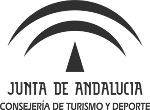Construct validity of Rosenberg Self-esteem Scale in Brazilian Athletic Context
Abstract
Objective: The purpose of this study was to evaluate the psychometric properties of the Rosenberg Self-esteem Scale in the athletic context of Brazil.
Method: In total, 387 athletes participated in the study, 232 men and 155 women, with a mean age of 22.1+/-4.5 years, practitioners of team modalities in clubs in Southern Brazil. The construct validity was evaluated through exploratory Factorial Analyses with Oblimin Rotation and the factorial weight 0.3 was used to exclude items. Cronbach’s Alpha and Polychoric Correlation evaluated the internal variance consistency.
Results: The Rosenberg Self-esteem Scale uploaded on 2 factors showed 61% of the variance of the construct, with factor 1 adding items about positive self-esteem and factor 2 about negative self-esteem. To confirm the internal consistency of the instrument, we performed polychoric correlation between the items on the scale. All items showed significant positive correlation above 0.3 (p>0.05) confirming the good internal consistency of the questionnaire.
Conclusion: This research identifies good psychometric properties of the Rosenberg Self-esteem Scale in the Brazilian sport context of athletes of team sports. The bifactorial structure was verified, agreeing with the original proposal, suggesting the separate score calculation of each factor on the self-esteem Scale.


